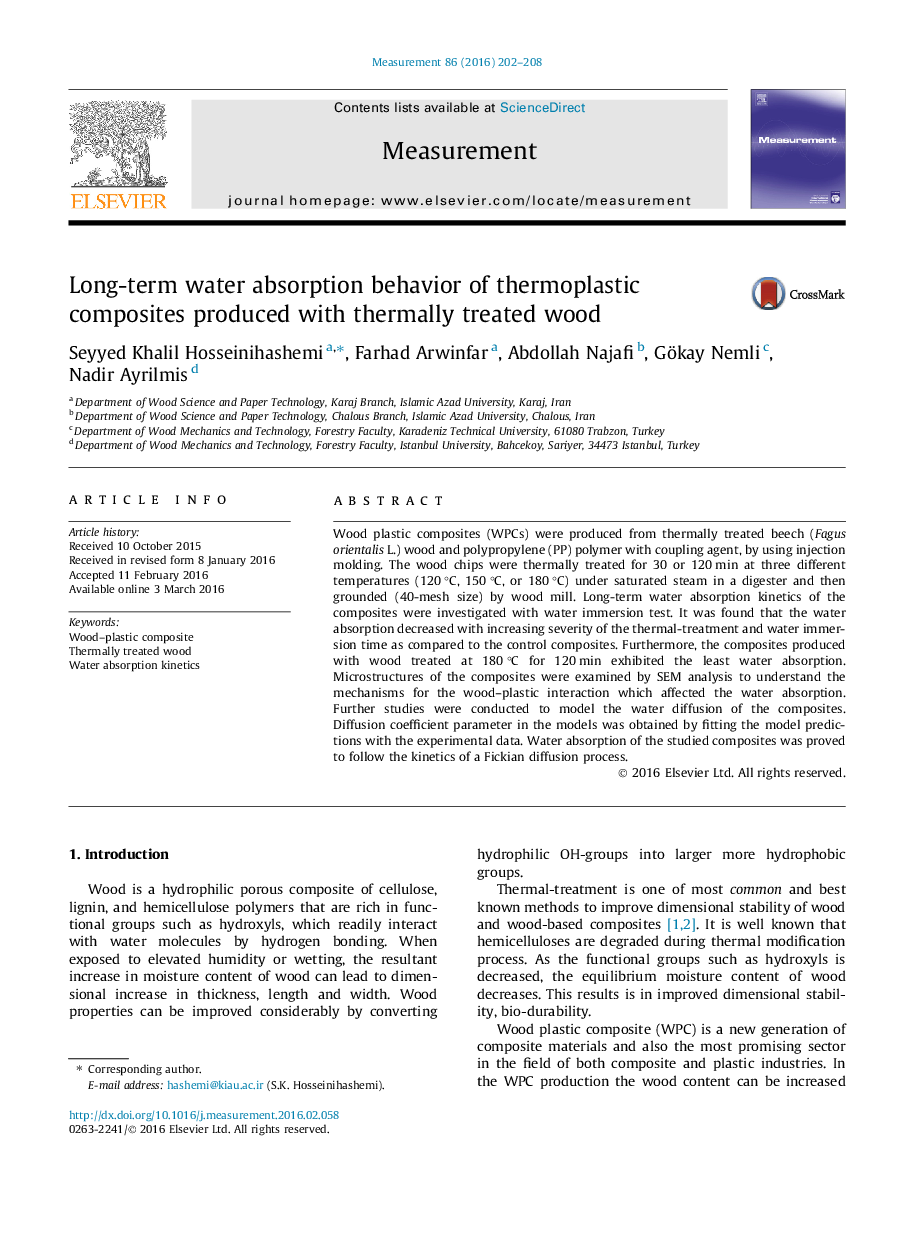| Article ID | Journal | Published Year | Pages | File Type |
|---|---|---|---|---|
| 730761 | Measurement | 2016 | 7 Pages |
Wood plastic composites (WPCs) were produced from thermally treated beech (Fagus orientalis L.) wood and polypropylene (PP) polymer with coupling agent, by using injection molding. The wood chips were thermally treated for 30 or 120 min at three different temperatures (120 °C, 150 °C, or 180 °C) under saturated steam in a digester and then grounded (40-mesh size) by wood mill. Long-term water absorption kinetics of the composites were investigated with water immersion test. It was found that the water absorption decreased with increasing severity of the thermal-treatment and water immersion time as compared to the control composites. Furthermore, the composites produced with wood treated at 180 °C for 120 min exhibited the least water absorption. Microstructures of the composites were examined by SEM analysis to understand the mechanisms for the wood–plastic interaction which affected the water absorption. Further studies were conducted to model the water diffusion of the composites. Diffusion coefficient parameter in the models was obtained by fitting the model predictions with the experimental data. Water absorption of the studied composites was proved to follow the kinetics of a Fickian diffusion process.
